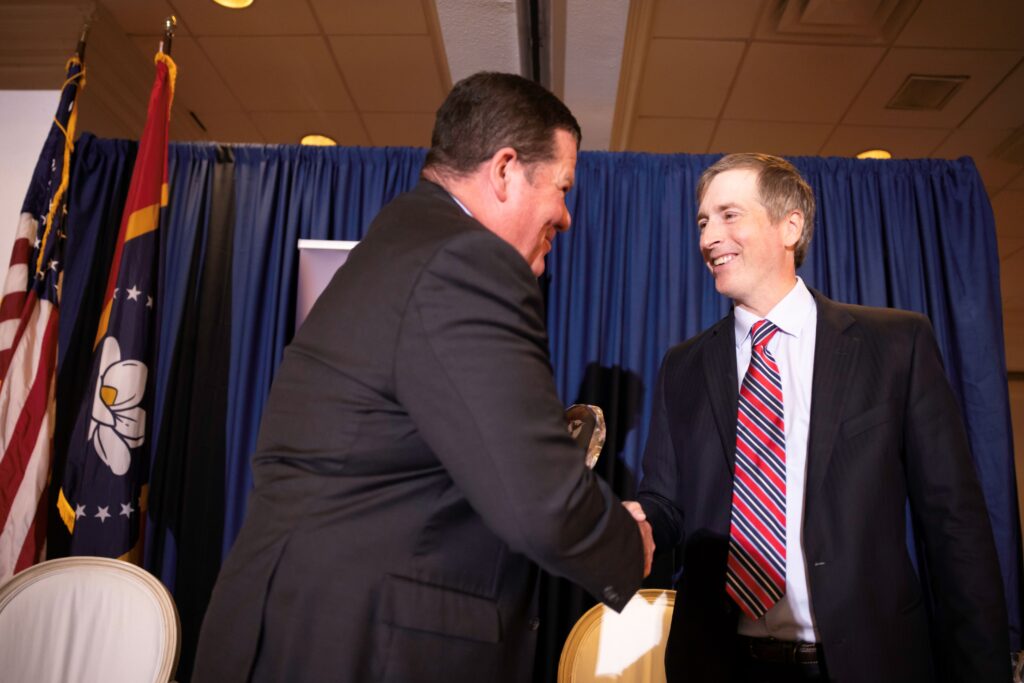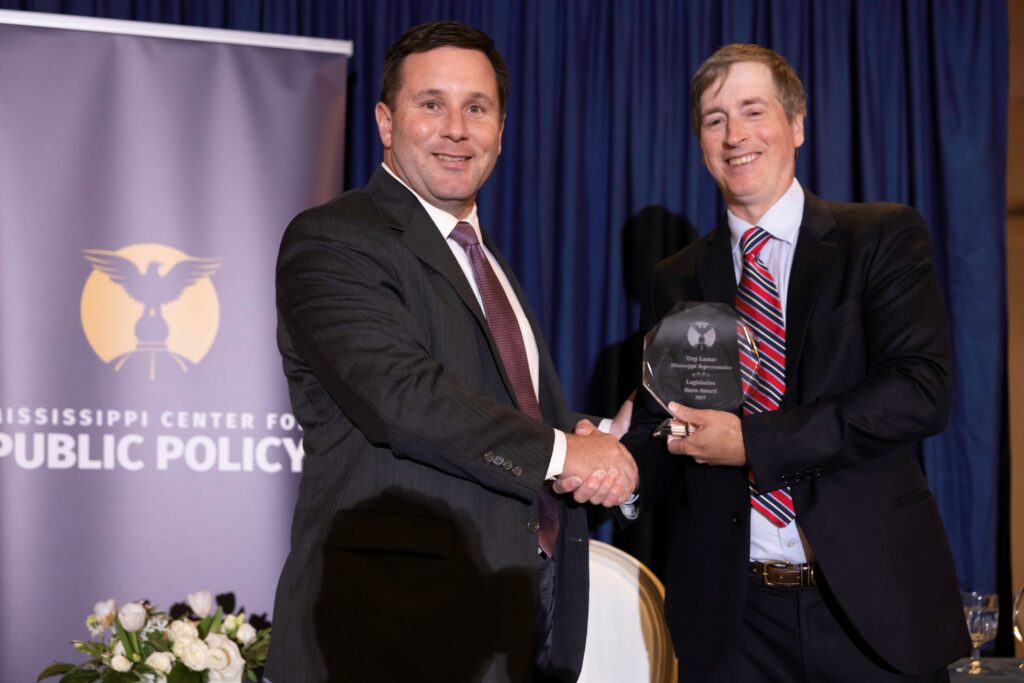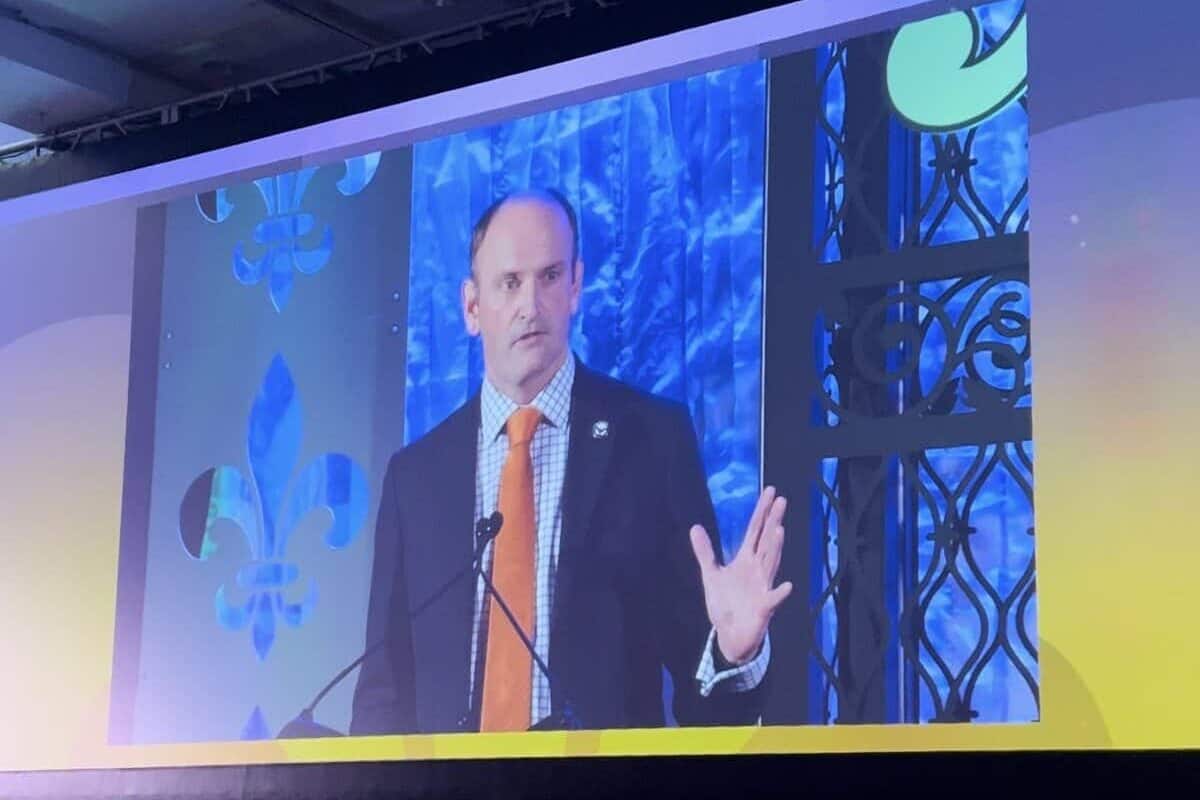Over the past few years, Mississippi lawmakers have passed some critical conservative reforms. Last year, Mississippi became the first state in America to legislate to eliminate the income tax in 40 years. In 2022, we implemented flat tax reform. A few years before that, we passed important labor market reforms. In 2024, we reformed school funding to get more money into the classroom.
It is thanks to these flagship conservative reforms that Mississippi has enjoyed more economic growth in the past five years than over the previous fifteen combined.
Yet every single time one of these flagship conservative reform was being considered, I noticed a similar pattern. Those opposed to flagship conservative policy are too wily to come straight out and say they don’t want conservative policy in a conservative state. What they do instead is offer less substantial alternatives, which might be perfectly good policy, but don’t really change much at all.
On school funding, for example, those opposed to the new funding formula offered a few tweaks to the old system. Those that did not want income tax to be eliminated proposed a handful of performative tax reductions here and there. Now that Mississippi has a real chance to achieve universal school choice, we are seeing the same distraction strategy.
Speaker Jason White’s Mississippi Education Freedom Bill (HB 2) is the most consequential education legislation seen in a generation.
It establishes Magnolia Student Accounts as education savings accounts to enable universal school choice in Mississippi. Families would receive roughly $7,000 per child deposited into a dedicated account. Parents could use these funds for tuition, curriculum materials, or other approved education expenses at the school of their choice—public, private, charter, or homeschool.
The program is due to begin in the 2027-28 school year with 12,500 accounts. Half of those (6,250) are reserved for students currently enrolled in public schools, while the remaining half are awarded via a first-come, first-served lottery to any eligible student.
Speaker White’s bill goes further by dismantling outdated, self-serving bureaucratic restrictions. It eliminates school districts' ability to block student transfers: If a receiving district is willing and has capacity, students can freely switch. The bill also removes barriers to charter school growth. HB 2 allows charters to open wherever operators see demand and viability, enabling statewide expansion.
You would have to be a socialist to oppose this – which is why it was so disappointing to see some Republicans listed at the bottom of this message vote against parent power.
Having failed to kill HB2 in the House, the socialists are now trying another tactic. They are offering up far less significant reforms that appeal to conservative ears, but fall far short of giving parents power.
This week the Senate approved a cluster of such education bills. There’s a bill that will require financial literacy lessons, another that will insist on civics. One of the bills approved by the Senate will try to improve math outcomes, another that will require 8th graders to reach a certain reading standard before advancing.
All of these things may be desirable, but they fall far short of parent power.
The danger is that some misguided voices big up these bills as something more substantial than they really are – and in doing make it easier for those opposed to flagship conservative reform to quietly kill off the important bits in HB2.
HB2 has now passed out of the Mississippi House and is on its way for consideration by the State Senate. If enacted, this would represent the pinnacle of conservative education reform in the United States. Most importantly, it shows a deep understanding that truly successful education reform requires parental involvement.
The Magnolia State has made great progress in recent years on the education front. Mississippi’s fourth graders now read better than those in New York, California, or Minnesota, according to National Assessment of Educational Progress (NAEP) scores. You read that correctly: A state that barely a decade ago ranked near the bottom for fourth grade reading now sits near the top of the NAEP tables.
But despite Mississippi’s stellar progress, almost half of fourth graders still are not proficient in reading and math, and roughly one in four elementary students continues to be chronically absent.
The solution to that is not to micromanage how teachers teach in every classroom in our state, but to give families the power to choose the education for their child. Mississippi needs to give parents - not politicians - the ultimate oversight of what happens in the classroom.
You cannot credibly claim to be a conservative in the legislature if you oppose HB2. Here, incidentally, is a list of the Republican members of the House that sided with the socialists against parent power.
Who sided with progressives to try to block school choice?
- Richard Bennett
- Andy Boyd
- Billy Calvert
- Carolyn Crawford
- Becky Currie
- Jill Ford
- Greg Haney
- Stacey Hobgood-Wilkes
- Timmy Ladner
- Clay Mansell
- Kent McCarty
- Missy McGee
- Dana McLean
- Gene Newman
- Fred Shanks
- Troy Smith
- Lance Varner
Last week, House Speaker Jason White unveiled HB2, the Mississippi Education Freedom Act - the most exciting and ambitious advancement for school choice in our state in years, perhaps ever!
This comprehensive bill delivers everything supporters of parental power have long hoped for, and it aligns perfectly with President Trump’s strong commitment to education freedom.
This isn’t some minor adjustment or performative law – it’s the real thing for anyone who believes in putting parents in charge of their children’s education.
Here’s what the bill does and why we at MCPP are so enthusiastic:
- Magnolia Student Accounts: Families will be able to direct around $7,000 per child (drawn from the base amount in the new Mississippi Student Funding Formula already allocated to their child) into a Magnolia Student Account (an Education Savings Account). Parents can then use those funds for private school tuition, homeschooling, therapies, or other tailored educational needs.
In the initial phase, up to 12,500 accounts will be available, with priority for low- and middle-income families, and a balanced split between current public school students and others. The program will expand each year until every family that wants one can have access. Homeschool families participating can also receive $1,000 annually to help cover costs.
- Easier Public School Transfers: Currently it’s difficult to switch schools from one public school to another. HB2 makes it easier by ensuring you will no longer need the approval of the district you are leaving, just approval from the new school you want your child to attend.
- Statewide Charter Schools: Mississippi has had charter schools for over a decade, but strict limits have made it nearly impossible to open them outside select low-performing districts. HB2 opens the door statewide, allowing charters to launch wherever there’s demand and need.
- Literacy: Mississippi has become a national leader in raising reading standards through phonics-based early education. HB2 builds on this success by extending targeted literacy support into higher grades.
- Smart District Consolidation: Consolidation of districts would always be a challenge, but the bill takes a practical, conservative approach: It consolidates specific districts (like Copiah County and Hazlehurst) as a model, providing a template for future efforts without mandating widespread closures.
HB2 is Speaker Jason White’s flagship reform for the 2026 session, fulfilling his promise that “all Mississippi families, regardless of income or zip code, have real choices and the freedom to pursue what works best for their children.” He deserves strong support for the most significant conservative education reform our state has seen in a generation.
Dozens of Mississippi business leaders, along with former Governors Haley Barbour and Phil Bryant, have already voiced strong support. Team Trump is behind it too.
In short: If you oppose this bill, it’s hard to credibly claim to be a conservative. That’s exactly why the progressive left is already fighting it tooth and nail – they fear real parent power and will twist the facts to stop these reforms.
HB2 is now moving through the legislature, with real momentum in the House. Having had a massive conservative majority in Mississippi for years, here at last is the opportunity to implement a conservative reform in our state that will change our state for the better.
Real change is happening – and Mississippi is leading the way!
Big news on School Choice this week! A fresh poll shows massive support in Mississippi to have families, not government, control their child’s education. Mississippi voters say they’ll reward lawmakers who make it happen.
The brand-new statewide survey (October 27-30, 2025) conducted by The Tarrance Group shows rock-solid support for expanding education freedom. There is massive bipartisan support across every region, race, and political affiliation.
Any little cliques that try to derail school choice need to know what they are going to be up against. Either they can support School Choice and President Trump, or they can side with leftwing teacher unions - and lose, as some anti School Choice lawmakers in Texas found out.
Here’s what Mississippi voters are saying - loud and clear:
- 86% support parents, not government, choosing the best school for their child (58% strongly).
Support spans demographics: 87% White, 83% Black, 93% Republican, 83% Independent, 76% Democrat. - 75% support Education Savings Accounts (ESAs) for all families—no income caps, no district restrictions.
75% of K-12 parents agree. 83% of Republicans, 73% of Independents, 65% of Democrats. - 79% are more likely to vote for legislators who expand ESAs statewide and universally (+58 net favorability).
Even 71% of Democrats say they’re more likely to support pro-ESA lawmakers. - 78% agree that when funding follows the child, schools become more accountable (35% strongly).
- 77% support letting dissatisfied families switch schools and take their funding with them.
- Bonus boost: 66% say President Trump’s strong support for universal school choice makes them more supportive (+34 net).
Mississippians see progress and according to the poll, 58% say K-12 education is heading in the right direction - and 65% of parents agree.
Wanting School Choice is not fringe – it’s the mainstream position in Mississippi.
With your help, we’ll hold lawmakers accountable and deliver the education freedom Mississippi families deserve.
FOR IMMEDIATE RELEASE
October 30, 2025
MISSISSIPPI CENTER FOR PUBLIC POLICY HONORS LEGISLATIVE HEROES AT ANNUAL GALA CELEBRATING STATE SUCCESS
JACKSON, MS – October 30, 2025 –Six of Mississippi’s leading lawmakers were presented with award to honor them for championing principled conservative policy. Rich Lowry, editor of the National Review, presented each of the winners.
Healthcare
Rep. Sam Creekmore and Rep. Hank Zuber were jointly honored for their leadership in challenging Mississippi’s Certificate of Need (CON) laws, which restrict the expansion of healthcare providers and limit patient access.

Countering DEI
Sen. Angela Hill received the award for her early and unwavering stand against the encroachment of divisive DEI (Diversity, Equity, and Inclusion) policies in Mississippi’s public universities. Long before the issue gained national attention, Sen. Hill worked to safeguard academic freedom and institutional integrity at the state’s flagship campuses.

Education Reform
Rep. Jansen Owen was recognized for leading the 2025 legislative effort to expand open enrollment through HB 1435. Though the bill passed the House with broad bipartisan support - uniting parents, educators, and lawmakers - it was ultimately blocked in the Senate.

Income Tax Elimination
Mississippi became the first state since Alaska in 1980 to phase out its personal income tax through HB1. Rep. Trey Lamar and Speaker Jason White were honored as the driving forces behind this transformative reform. Through public town halls, transparent negotiations, and superior policy arguments, the duo outmaneuvered opposition and delivered a pro-family, pro-growth tax cut that is already attracting investment and enhancing Mississippi’s competitiveness.“


These lawmakers represent the best of conservative leadership - courageous, principled, and effective,” said Douglas Carswell of the Mississippi Center for Public Policy. “Their work is making Mississippi a national model for freedom, opportunity, and common-sense governance.”
For Immediate Release
Jackson, MS – September 23, 2025 — Students from across Mississippi gathered in Jackson on Saturday for the opening session of the 2025 Mississippi Leadership Academy, a program that equips high school and college students with leadership training, civic knowledge, and direct access to state leaders.
This year’s kickoff featured State Auditor Shad White, Representative Rodney Hall, Americans for Prosperity Director of Grassroots Operations Stone Clanton, and Representative Chris Bell, who each shared their personal leadership journeys and engaged students in Q&A sessions.
“This program is designed to give young people the chance to think critically, ask tough questions, and walk away with skills that will serve them in whatever field they choose,” said Douglas Carswell, President & CEO of the Mississippi Center for Public Policy, which hosts the Academy. “The level of engagement we saw from these students gives me great hope for Mississippi’s future.”
The Academy brings together students from all over the state for two intensive Saturday sessions. In addition to leadership development and policy discussions, participants receive volunteer hour credit and opportunities to network directly with elected officials and community leaders.
The program will continue in October with a second session featuring additional speakers and interactive training opportunities for students.
Since its launch in 2021, the Mississippi Leadership Academy has seen strong results: more than one-third of past participants have gone on to internships with state leaders they first met through the program.


This week, I’ll be traveling to Washington, D.C. talking about Mississippi’s remarkable progress, including our elimination of the income tax and how we might best advance school choice in our state.
Mississippi is gaining national attention for our transformative public policies. Once seen as a perennial underdog, our state is now recognized as a leader in free-market reforms that are driving unprecedented economic growth. A lot of folks in Washington and elsewhere are starting to notice our state for the right reasons!
Over the past five years, under Governor Tate Reeves’ leadership, we’ve achieved more economic progress than in the previous fifteen years combined, attracting massive investment. The folk making the decisions to put their dollars into our state know success when they see it.
This week, the Mississippi Center for Public Policy was honored with an award for our role in eliminating the income tax—a milestone in a series of reforms, including labor market changes in 2021, flat tax implementation in 2022, and school funding reforms in 2023.
As I said in my speech when I accepted the award on behalf of our Mississippi team, together these reforms make a potent policy combination. Click on the image below to hear what I said to the audience about Mississippi’s success story.

Now, we’re focused on the next critical step: school choice. Momentum is building, and there’s strong support from Team Trump, who see it as “the civil rights issue of our time.”
This week, two senior Trump administration officials, Deputy Assistant Secretary Laurie Todd-Smith and Deputy Chief of Staff Lindsey Burke, visited Mississippi to advocate for education reform before the House Select Committee on Education Freedom. Their compelling case was met with enthusiasm from parents, who outnumbered the entrenched status-quo lobbyists.
Mississippi is on the cusp of ensuring every family has access to the educational opportunities their children deserve. Your support is vital as we work to make school choice a reality.
Thank you for standing with us.
What would it take for Mississippi to embrace School Choice? How can we join our neighboring states in empowering families to control their child's share of the education budget? For School Choice to happen, we would need to see several steps.
Number one, we would need a committed Governor, ready to invest his political capital in this great conservative cause. Great news! This week, Governor Tate Reeves signaled in an interview with SuperTalk that School Choice will be his top priority for the 2026 legislative session.
Step two, we would have to have a supportive House Speaker. Once again, good news. This week, Speaker Jason White confirmed that the House is actively crafting legislation for 2026.
Thirdly, we would have to have strong grassroots support. Polling already shows that more than two-thirds of Mississippians support School Choice.
This week, Americans for Prosperity – Mississippi hosted an outstanding event in Jackson, led by the amazing Starla Brown. Speakers like Pastor Greg Divinity and Leah Ferretti powerfully articulated the moral imperative: Every family should have the choices that today are reserved only for the wealthy.
Fourth, it would be a big help to have the endorsement of Team Trump. Fantastic news on that front, too—having discussed this at the White House some time ago, it's evident to me that Team Trump is not just supportive; they're deeply passionate, viewing School Choice as "the civil rights issue of our time."
Fifth, if we are to allow families control of their child’s share of the budget, it would be helpful to know what “their share” consists of. Thanks to the 2024 school funding reforms, every child now receives a base amount of about $7,000 annually.
All we ask is that those who want to have that money paid into an Education Savings Account that they can then allocate to a school of their choice.
Finally, it would be tremendously helpful if those against School Choice endlessly resorted to misleading claims and hyperbole. I don’t think we’ll be disappointed there, either.
Claims that school choice would force your local school board to accept students from outside areas are simply untrue—and I believe many of those that suggest otherwise know it. Every proposal I’ve seen ensures school boards retain the final say on capacity.
As I learned from the Brexit campaign, dishonest claims from opponents only undermines the credibility of their campaigns. Having been able to rely on establishment opinion for too long, they’ve never mastered the art of making their case convincingly.
All the ingredients are there for Mississippi to adopt School Choice in 2026.
I’m thrilled to share that momentum for School Choice in Mississippi is growing! Governor Tate Reeves, Speaker Jason White, and even the White House are championing this transformative opportunity to empower parents and enhance education for our children.
This week, WTOK TV aired an in-depth segment exploring how School Choice could benefit families across our state. I had the pleasure of discussing this important topic with news anchor Anna-Hope Bigham. You can watch our conversation by clicking on the image below:

| Thank you for your continued support as we work to put parents in the driver’s seat of their children’s education. |
The Neshoba County Fair is a Mississippi tradition, bringing together thousands of folk at the height of summer for a week of Southern celebration—music, dancing, food, cattle shows, horse racing, and, of course, politics. Ever since Ronald Reagan kicked off his 1980 presidential campaign at the Fair, it’s been the place where public officials in our state go to share their vision.
Of course, not every speech I’ve heard at Neshoba was always memorable or historic. This Thursday was different. House Speaker Jason White delivered a powerful speech making the case for universal school choice, which may mark a turning point for Mississippi.
Reflecting on his promise last year to eliminate the income tax—a promise he kept—Speaker White made it clear that we can expect to see a comprehensive bill to extend school choice in 2026. “Every child regardless of their zip code,” he said “deserves a fair chance to succeed. …. Parents know what’s best for their children”.
White emphasized that Mississippi families should control their child’s share of state education funds, empowering them to choose the best education—public, private, or homeschool—for their children.
White’s speech was frequently interrupted by prolonged applause from the crowd. Enthusiasm was obvious when the Speaker framed school choice, or what President Trump calls “Parent Power,” as a cornerstone of conservative policy. The Trump White House, Speaker White noted, is fully supportive of his push for Parent Power.
Governor Reeves, who followed Speaker White at the podium talked about school choice at the press huddle afterwards. Reeves made it clear he is 100 percent onboard with White’s plan. The Governor suggested that Mississippi needed to prioritize school choice now that so many other southern states had done so. Every neighboring state—Arkansas, Alabama, Tennessee, and Louisiana—has embraced school choice, giving families choices for their kids that once only rich people had.
The 2025 Neshoba County Fair could go down in history as the occasion where the House Speaker came out clearly for School Choice – and the conservative movement, urged on by the Trump White House, rallied in support.
I might not have been at Neshoba for Reagan in 1980, but I was there for Jason White in 2025. A historic inflection point for our state.
